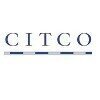Filter interviews by
Datamatics Business Solutions Accountant Interview Questions and Answers for Experienced
Datamatics Business Solutions Accountant Interview Experiences for Experienced
2 interviews found
I applied via Naukri.com and was interviewed in Dec 2021. There were 4 interview rounds.
Personal, Logical reasoning and mathematical question- easy to medium
(1 Question)
- Q1. Youself, exprience, expectation and personal detail question
(1 Question)
- Q1. Accured, prepayment, bank reconcilation, loan repayment and interest calculation and many more
(1 Question)
- Q1. Personal details with little technical question
Interview Preparation Tips
- Accounting
I applied via Naukri.com and was interviewed before Oct 2022. There were 2 interview rounds.

(2 Questions)
- Q1. Accounting entries,
- Q2. Types of accounts etc
- Ans.
Types of accounts include assets, liabilities, equity, revenue, and expenses.
Assets: Resources owned by the company (e.g. cash, inventory)
Liabilities: Debts or obligations owed by the company (e.g. loans, accounts payable)
Equity: Represents the owner's stake in the company (e.g. common stock)
Revenue: Income generated from business activities (e.g. sales revenue)
Expenses: Costs incurred to generate revenue (e.g. salarie
Interview Preparation Tips
Accountant Jobs at Datamatics Business Solutions
Top trending discussions






Interview questions from similar companies

Interview Questionnaire
2 Questions
- Q1. What is brs?
- Ans.
BRS stands for Bank Reconciliation Statement, which is a statement that compares the bank balance as per bank statement with the balance as per company's books.
BRS helps in identifying any discrepancies between the bank statement and company's books
It ensures that all transactions are recorded accurately
It helps in detecting any fraudulent activities
Example: If the bank statement shows a different balance than the comp...
- Q2. What is book keeping?
- Ans.
Bookkeeping is the process of recording financial transactions and maintaining financial records.
Bookkeeping involves recording all financial transactions of a business.
It includes maintaining records of income, expenses, assets, and liabilities.
Bookkeeping is essential for preparing financial statements and tax returns.
Examples of bookkeeping tasks include recording sales, tracking expenses, and reconciling bank state
Interview Preparation Tips

I applied via AmbitionBox and was interviewed in Sep 2024. There was 1 interview round.
(2 Questions)
- Q1. What is accounting
- Ans.
Accounting is the process of recording, summarizing, analyzing, and reporting financial transactions of a business.
Accounting involves recording financial transactions such as sales, purchases, and expenses.
It includes summarizing the financial data into financial statements like balance sheets and income statements.
Accounting also involves analyzing the financial information to provide insights for decision-making.
Rep...
- Q2. What is journal
- Ans.
A journal is a detailed record of financial transactions in chronological order.
A journal is used to record all financial transactions of a business.
It includes the date, description, and amount of each transaction.
Journals are typically organized by accounts, such as cash, accounts receivable, and accounts payable.
The information recorded in a journal is later transferred to the general ledger for financial reporting.
...
Interview Preparation Tips

I appeared for an interview in Feb 2025, where I was asked the following questions.
- Q1. Difference Between forward and future contracts
- Ans.
Forward contracts are private agreements, while futures are standardized and traded on exchanges.
Forward contracts are customized agreements between two parties, while futures are standardized contracts traded on exchanges.
Futures contracts have daily settlement and margin requirements, whereas forward contracts settle at the end of the contract period.
Example: A farmer may enter a forward contract to sell wheat at a s...
- Q2. Explain what are swaps
- Ans.
Swaps are financial derivatives where two parties exchange cash flows or liabilities to manage risk or speculate.
Types of swaps include interest rate swaps, currency swaps, and commodity swaps.
In an interest rate swap, one party pays a fixed interest rate while receiving a variable rate, and vice versa.
Currency swaps involve exchanging principal and interest payments in different currencies, useful for hedging foreign ...

I applied via LinkedIn and was interviewed before Apr 2023. There were 2 interview rounds.
(1 Question)
- Q1. General HE questions such as previous work experience and expected salary
Some technical questions regarding the role such as journal entries and definition of terms
Interview Preparation Tips

I applied via Approached by Company and was interviewed in Oct 2022. There were 3 interview rounds.

Study Details . What is my particular study and my skills.
What about... important of group discussion and chasing of success.
Interview Preparation Tips
- Marketing Communication
- Accounts Receivable
- E-commerce
- Communication Skills

I appeared for an interview in Mar 2025, where I was asked the following questions.
- Q1. What made you move from your last job?
- Q2. What is your experience with excel

I applied via Referral and was interviewed in Jul 2022. There were 2 interview rounds.
(1 Question)
- Q1. Need in accounting and auditing role
(1 Question)
- Q1. Accounting and auditing role
Interview Preparation Tips

(4 Questions)
- Q1. What is CMMI expand and what is sweep account. What is marginal cost what js expense nd expenditure
- Ans.
CMMI is a process improvement model. Sweep account is a bank account. Marginal cost is the cost of producing one additional unit. Expense is a cost incurred in the normal course of business. Expenditure is a payment made for goods or services.
CMMI stands for Capability Maturity Model Integration and is a process improvement model used in software development.
Sweep account is a bank account that automatically transfers ...
- Q2. What is depreciation what is fixed assets some eg. What is capital gains
- Ans.
Depreciation is the decrease in value of an asset over time. Fixed assets are long-term assets that are not easily converted to cash. Capital gains are profits from the sale of an asset.
Depreciation is the allocation of the cost of an asset over its useful life
Fixed assets are tangible assets that are expected to provide economic benefits for more than one year
Examples of fixed assets include buildings, machinery, and ...
- Q3. What is capital exp .what is the abbreviation for debtors
- Ans.
Capital exp refers to expenses incurred for acquiring or improving fixed assets. Abbreviation for debtors is DR.
Capital exp is a long-term investment in assets that will benefit the company for many years.
Examples of capital exp include purchasing a new building or machinery.
Debtors are customers who owe money to the company for goods or services provided.
The abbreviation for debtors is DR, which is used in accounting
- Q4. What is the abbreviations for creditor
- Ans.
The abbreviation for creditor is CR.
CR stands for creditor
CR is used in accounting and finance
CR is the opposite of debtor (DR)
Interview Preparation Tips
Datamatics Business Solutions Interview FAQs
Tell us how to improve this page.
Datamatics Business Solutions Interviews By Designations
- Datamatics Business Solutions Accountant Interview Questions
- Datamatics Business Solutions Senior Accountant Interview Questions
- Datamatics Business Solutions Intern Interview Questions
- Datamatics Business Solutions Research Associate Interview Questions
- Datamatics Business Solutions Web Designer Interview Questions
- Datamatics Business Solutions Assistant Manager Interview Questions
- Datamatics Business Solutions Software Developer Interview Questions
- Datamatics Business Solutions Customer Service Executive Interview Questions
- Show more
Datamatics Business Solutions Accountant Interview Process for Experienced
based on 1 interview
Interview experience
Accountant Interview Questions from Similar Companies
Datamatics Business Solutions Accountant Reviews and Ratings
based on 30 reviews
Rating in categories
|
Senior Accountant
188
salaries
| ₹3 L/yr - ₹6.5 L/yr |
|
Accountant
165
salaries
| ₹2 L/yr - ₹4.5 L/yr |
|
Research Associate
149
salaries
| ₹1.5 L/yr - ₹3.5 L/yr |
|
Associate Accountant
51
salaries
| ₹1.8 L/yr - ₹3 L/yr |
|
Team Lead
51
salaries
| ₹3.8 L/yr - ₹10 L/yr |

Deloitte

Ernst & Young

PwC

ZS
- Home >
- Interviews >
- Datamatics Business Solutions Interview Questions >
- Datamatics Business Solutions Accountant Interview Questions for Experienced














